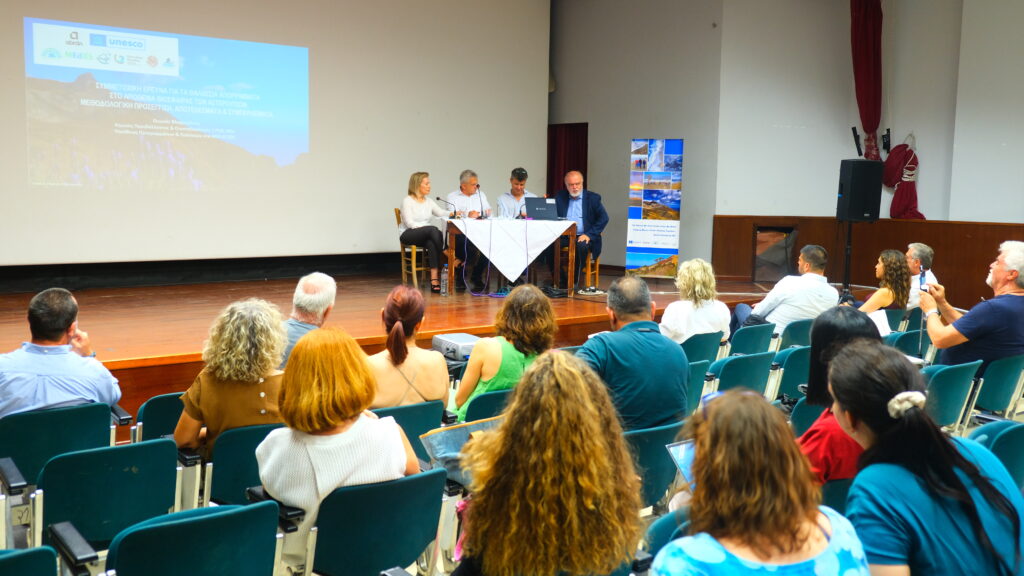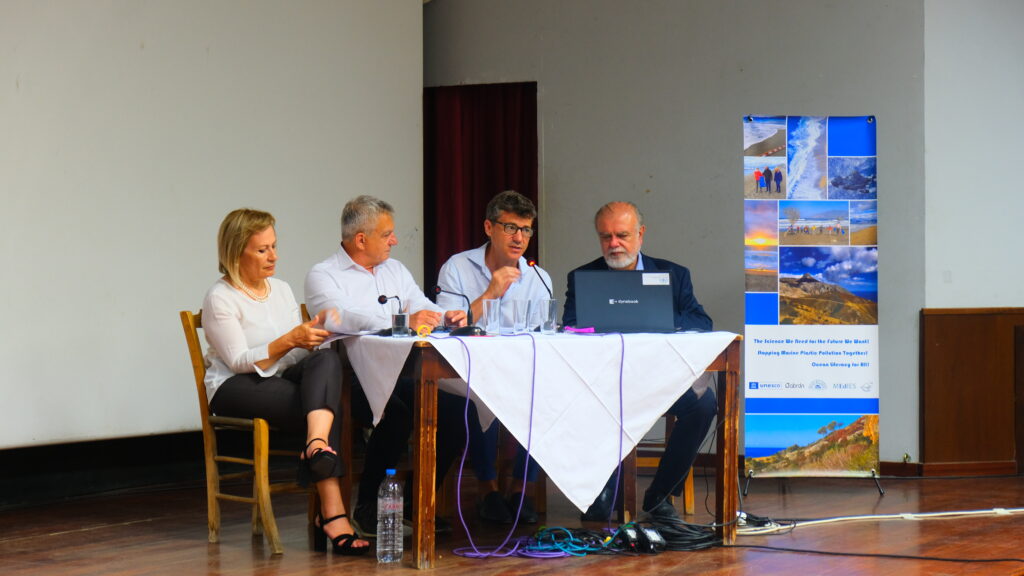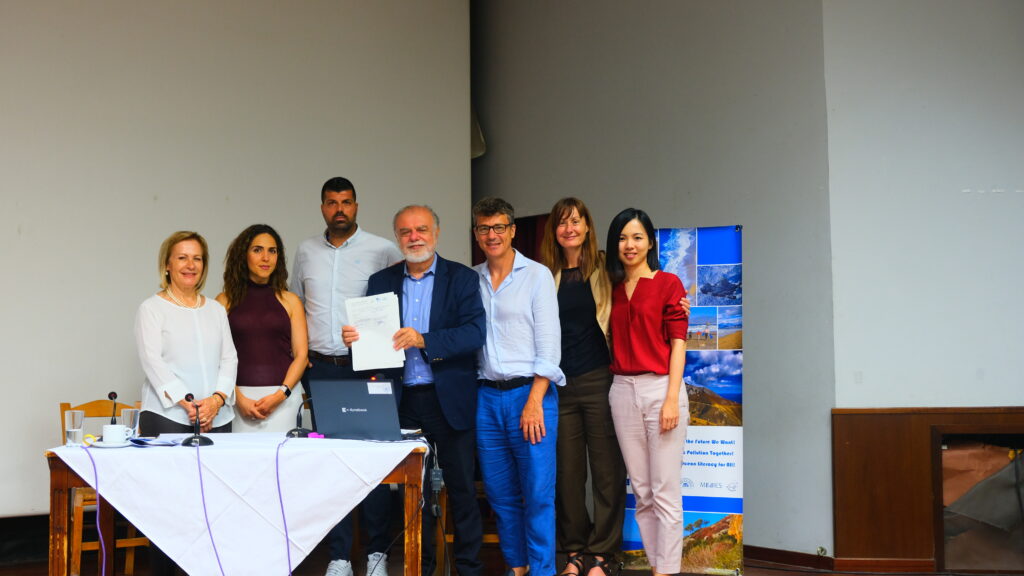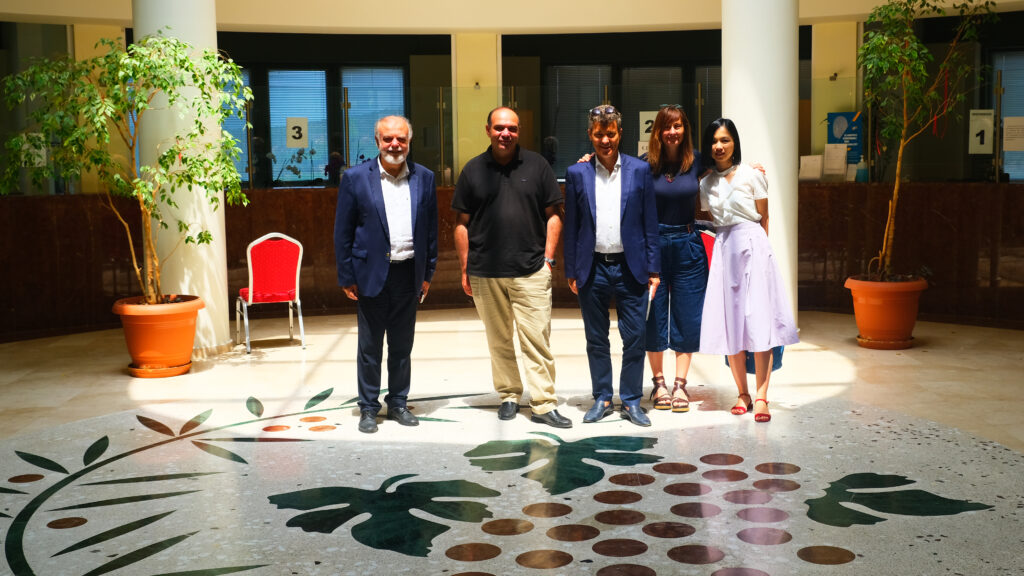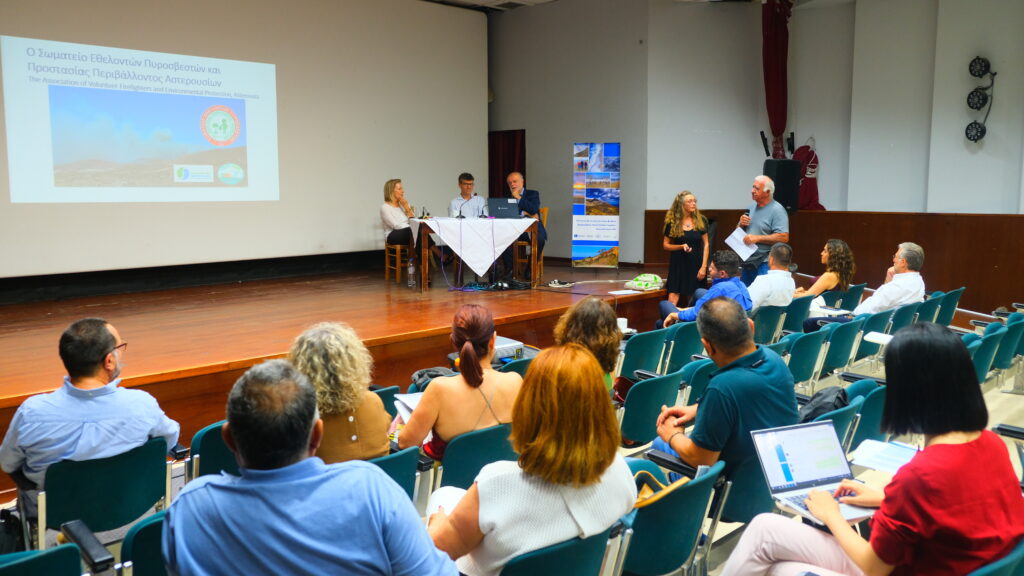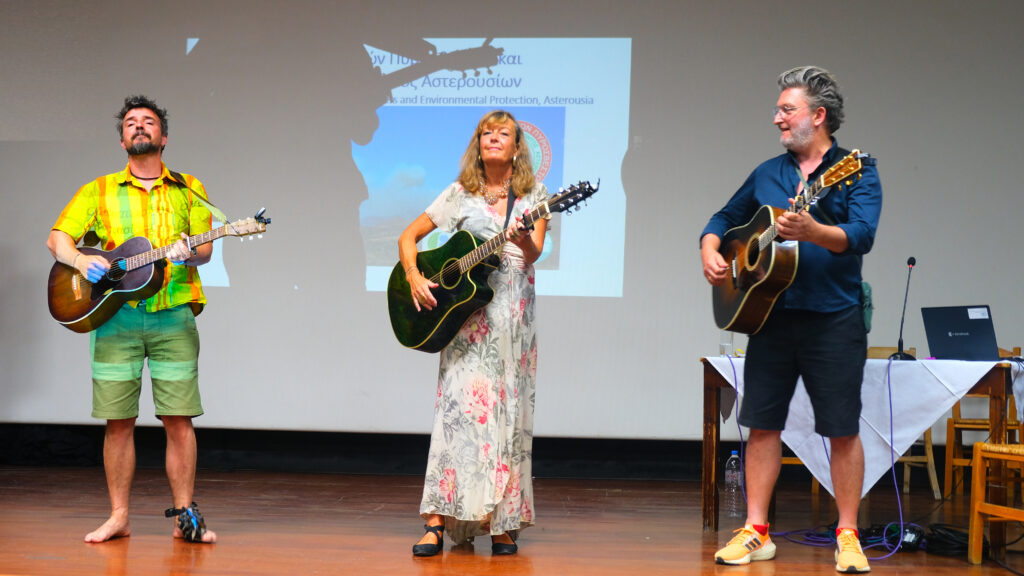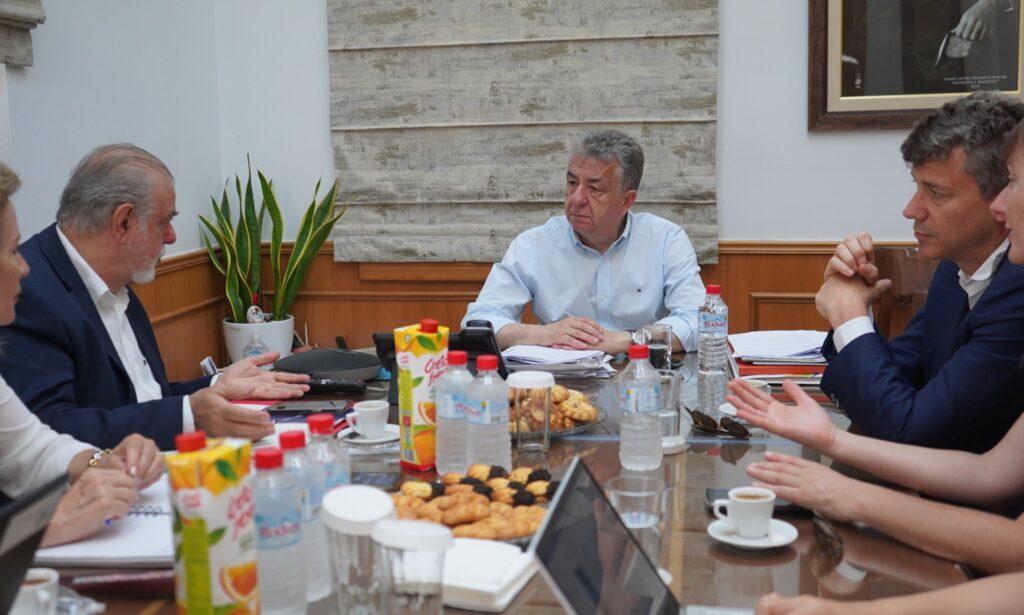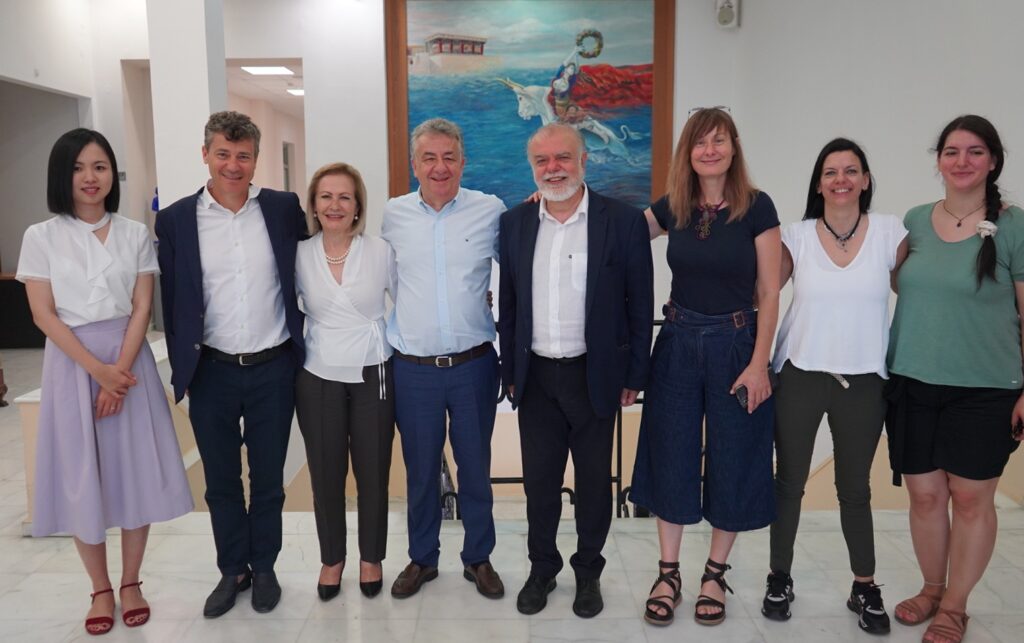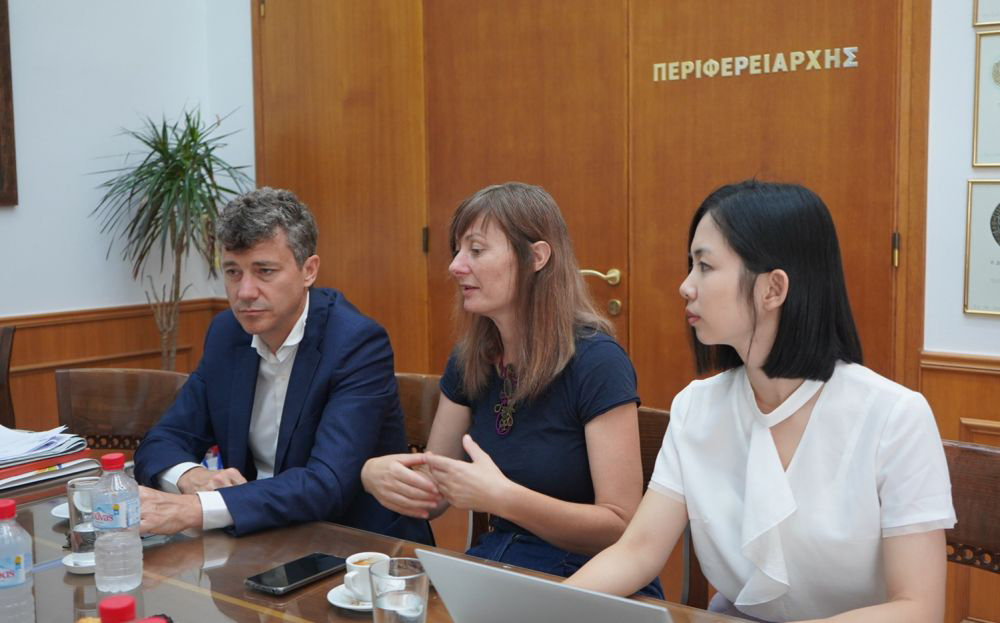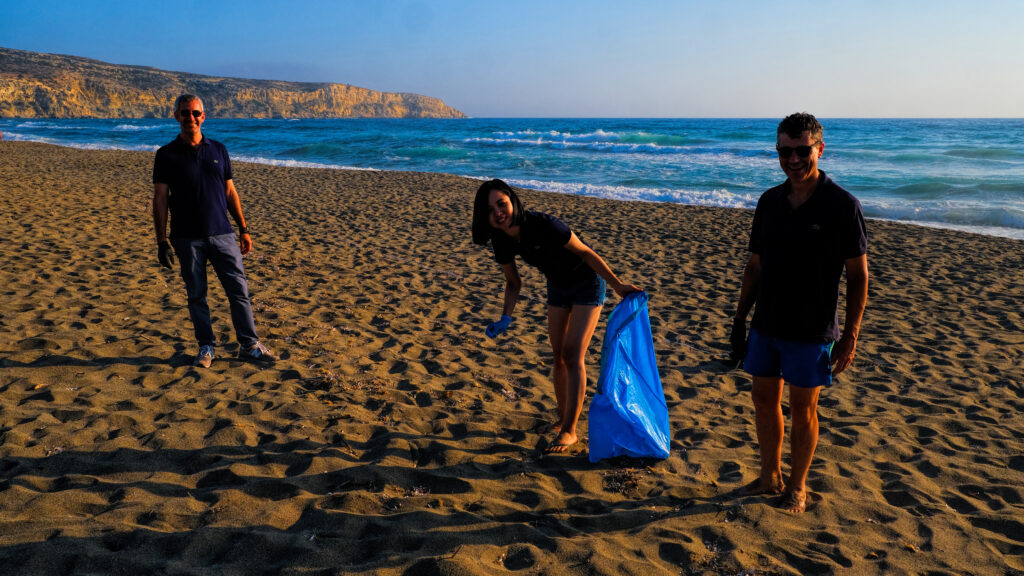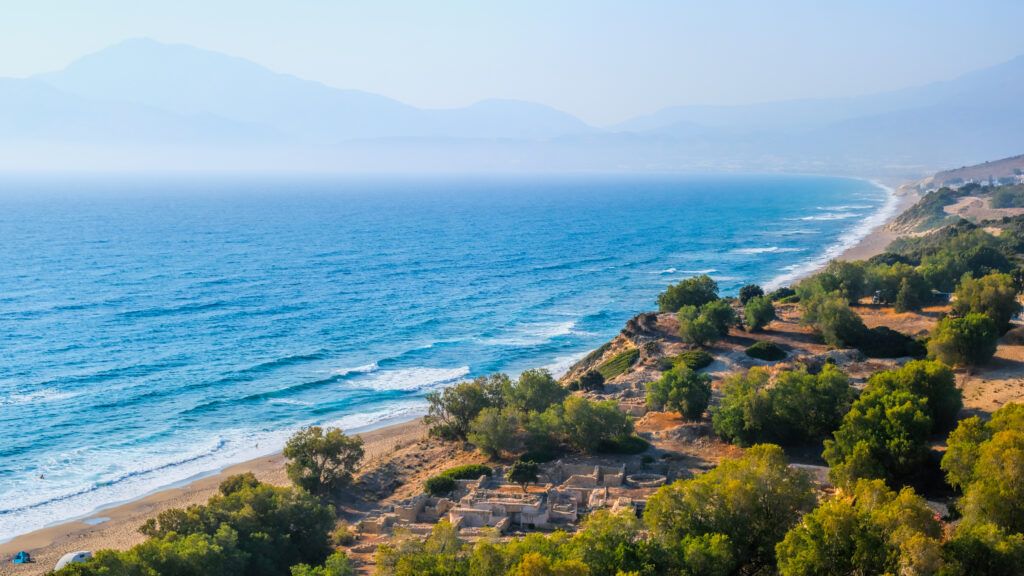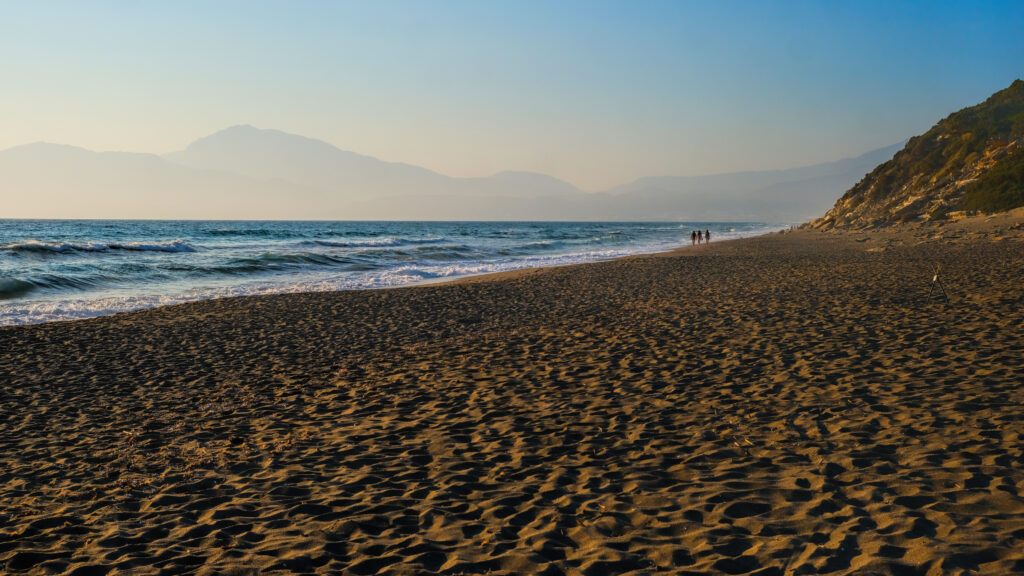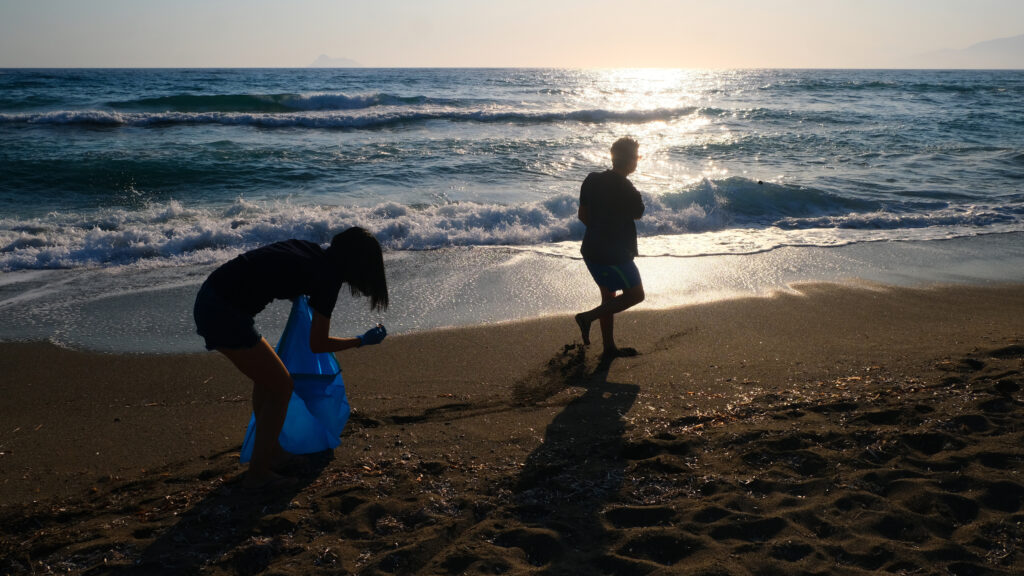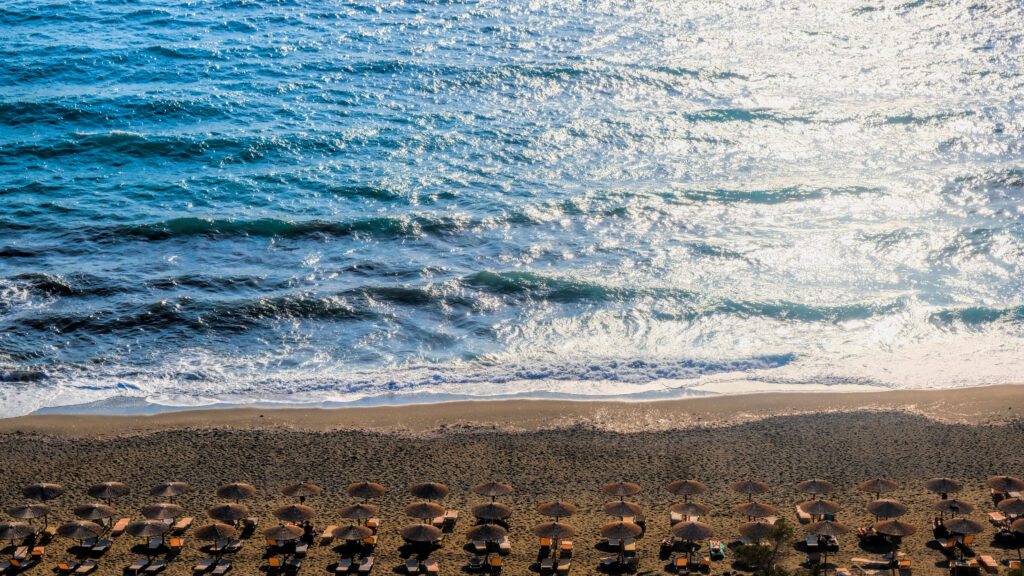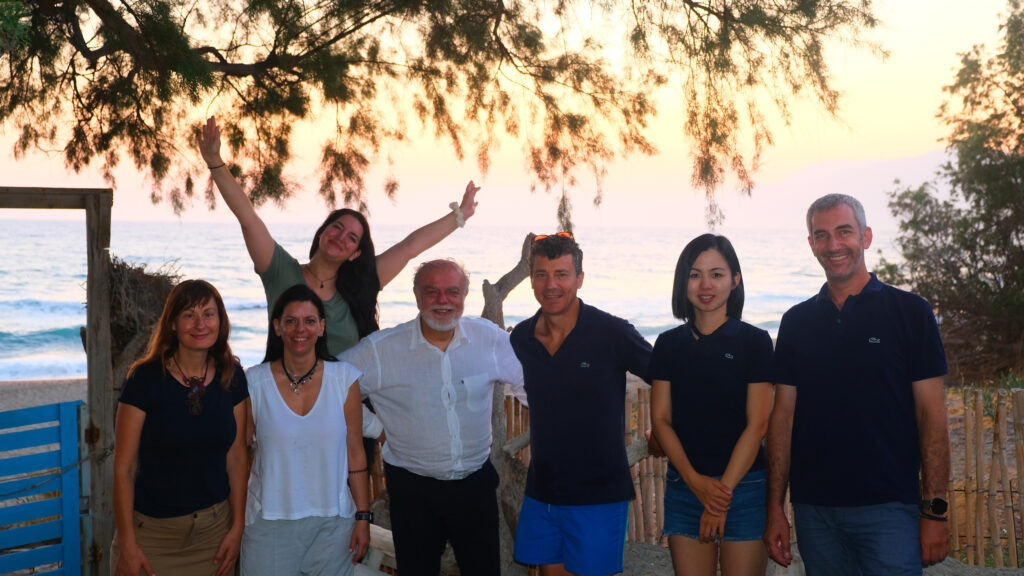To address the pressing issue of marine plastic pollution in the Asterousia Biosphere Reserve, a dynamic and inclusive workshop took place on June 28, 2023, at the Municipality of Festos. Over forty stakeholders from various sectors, including associations, cooperatives, youth groups, foundations, businesses, research institutes, and public authorities, came together. The workshop fostered a collaborative, co-creative, and inclusive environment, encouraging vibrant discussions and the identification of innovative measures to prevent and mitigate marine litter within the Biosphere Reserve. The ultimate goal was to incorporate these measures into the Biosphere Reserve’s Management Plan, ensuring a comprehensive and effective approach to address the challenge at hand. The workshop was organized by MIO-ECSDE in close cooperation with the Local Management Committee of Asterousia & Heraklion Development Agency, within the framework of the project entitled “Monitoring marine litter and generating fit-for-purpose data through a participatory science approach in Asterousia Biosphere Reserve” funded by UNESCO and the abrdn Charitable Foundation.
The workshop was inaugurated by Mrs. Theano Vrentzou-Skordalaki, Chair of the Local Management Committee of Asterousia. In her opening remarks, she highlighted the undeniable reality that the Asterousia Biosphere Reserve, renowned for its awe-inspiring natural beauty and diverse ecosystems, is grappling with the pervasive issue of marine plastic pollution, much like countless other coastal and marine protected areas across the globe.
Mr. Jonathan Baker, Head of the Science unit, UNESCO Regional Bureau, in his opening remarks stated: “We are delighted with the remarkable outcomes achieved through the Asterousia project, and we commend the extraordinary community-based approach embraced by the site. This collaborative effort exemplifies the power of local engagement and serves as a shining example of how communities can come together to protect and preserve our precious natural heritage.“
Mrs Theano Vrentzou-Skordalaki, Chair of the Local Management Committee of Asterousia; Mr. Gregorios Nikolidakis, Mayor of Phestos; Mr. Jonathan Baker, Head of Science unit, UNESCO Regional Bureau; Prof. Michael Scoullos, President of the Greek Committee of the Man and the Biosphere Programme of UNESCO, and Chairman of MIO-ECSDE.
In response to the urgent concern of marine litter and plastic pollution in the Asterousia Biosphere Reserve, two impactful participatory science campaigns were carried out in 2023. These campaigns took place across 9 carefully selected locations within the reserve and actively engaged 250 local community members. “Through our community-based research, we discovered that among the beaches assessed, only two are in good environmental status, meeting the European threshold value for beach litter of 20 items per 100-metter stretch. Regrettably, the remaining seven beaches surpassed this threshold, revealing the pressing need for action”, said Dr. Thomais Vlachogianni, Policy/Programme Officer at MIO-ECSDE and Project Coordinator. Based on the research findings, a notable 20% of the litter recorded can be directly attributed to food consumption-related items, stemming from unsustainable practices of beach users and beach goers and inadequate waste management. Additionally, agriculture emerged as the second significant contributor, accounting for 10% of the total litter items within the Asterousia Biosphere Reserve. This category encompasses various items, including plastic sheeting from greenhouses, plastic strings and cords for plant support, plastic irrigation pipes, plastic flower pots, and plastic trays for seedlings.
The workshop served as a platform to share and deliberate on the aforementioned results, engaging stakeholders from various backgrounds with the aim to establish consensus on the most promising and scalable measures that should be implemented in the Biosphere Reserve, contributing to a shift away from a throw-away society and towards a paradigm that can achieve litter-free oceans and seas. During the enlightening discussion session, Prof. Michael Scoullos, President of the Greek Committee of the Man and the Biosphere Programme of UNESCO, and Chairman of MIO-ECSDE, emphasized the paramount significance of prioritizing marine litter prevention actions over mitigation measures. “By focusing our efforts on prevention, we have the opportunity to tackle the root causes of this pervasive problem and create lasting change. It is through prevention that we can forge a sustainable path towards cleaner and healthier oceans and seas for future generations.”
An exceptional moment unfolded during the event as the Municipality of Festos, the Local Management Committee of Asterousia, the Hellenic Committee of the Man and the Biosphere Programme of UNESCO, and MIO-ECSDE came together to solidify their collaboration in a Memorandum of Understanding. This agreement signifies their shared commitment to transform the Asterousia Biosphere Reserve into a litter-free area. The Memorandum of Understanding outlines five strategic lines of action that will effectively combat the threat of marine litter within the reserve. These include the implementation of sustainable public procurement practices, the enhancement of waste management infrastructure, the reinforcement of beach cleaning programs, the support for adopt-a-beach schemes and participatory science campaigns, and the execution of targeted awareness-raising campaigns. Building on this success, a similar Memorandum of Understanding was also signed with the Municipality of Archanon-Asterousia the following day, while multiple local associations expressed keen interest in joining this impactful initiative.
- The Vice-Mayor of Festos, Mr. Antonios Konstantoulakis, signs the memorandum of understanding.
- The Mayor of Archanon-Asterousia, Mr. Manolis Kokosalis, signs the memorandum of understanding.
The event reached its culmination with a session highlighting exemplary initiatives dedicated to the prevention and mitigation of marine litter in Crete and the Mediterranean, which were delivered by MEdIES, MIO-ECSDE, and the Association of Volunteer Firefighters and Environmental Protection of Asterousia. Adding to the enchantment of the moment, participants were treated to a mesmerizing live performance of the empowering song “Save the Sea” by the renowned Swedish singer-songwriter, Ms. Eva Hillered, a Grammy-nominated artist.
- Ms Gina Billy Kraft and M. Konstantinos Manidakis, Association of Volunteer Firefighters and Environmental Protection of Asterousia.
- Grammy-nominated Swedish singer-songwriter Eva Hillered and fellow musicians Peter Sund and Patrick Rydman.
The workshop was organized back-to-back with a series of other activities, which comprised a beach litter survey, conducted as a demonstration action at Kommos Beach with the participation of two delegates from the UNESCO Regional Bureau for Science and Culture in Europe and a visit to the Regional Governor of Crete, Mr. Stavros Arnaoutakis, providing an opportunity to brief him on the outcomes of the marine litter project in the Asterousia Biosphere Reserve.
Meeting with the Regional Governor of Crete, Mr. Stavros Arnaoutakis
Demonstration action at Kommos Beach with the participation of two delegates from the UNESCO Regional Bureau for Science and Culture in Europe
Note to the editor
With the aim to tackle the marine litter threat in the Asterousia BR and concretely contribute to its sustainable development, a one-year-long project entitled “Monitoring marine litter and generating fit-for-purpose data through a participatory science approach in Asterousia Biosphere Reserve” as launched in the last quarter of 2022. The project, which is funded by UNESCO and the abrdn Charitable Foundation, entailed actions focused on improving the marine litter knowledge base and evidence in the Biosphere Asterousia Reserve, strengthening its management plan with tailored-made marine litter prevention and mitigation measures and innovative solutions, educating and engaging local communities (in particular youth) in generating fit-for-purpose marine litter data through a participatory science approach.
The Mediterranean Information Office for Environment, Culture and Sustainable Development (MIO-ECSDE, project coordinator), together with the Local Management Committee of Asterousia & Heraklion Development Agency, the Mediterranean Education Initiative on Environment and Sustainability, the Hellenic Marine Research Centre, the University of Crete and its Museum of Natural History, sought to provide a concrete showcase of how community-based research can deliver the “Science We Need for the Future We Want”, within the context of the UN Ocean Science Decade and the Ocean Literacy Framework.
Read this article in Greek here
Read this article in French here
